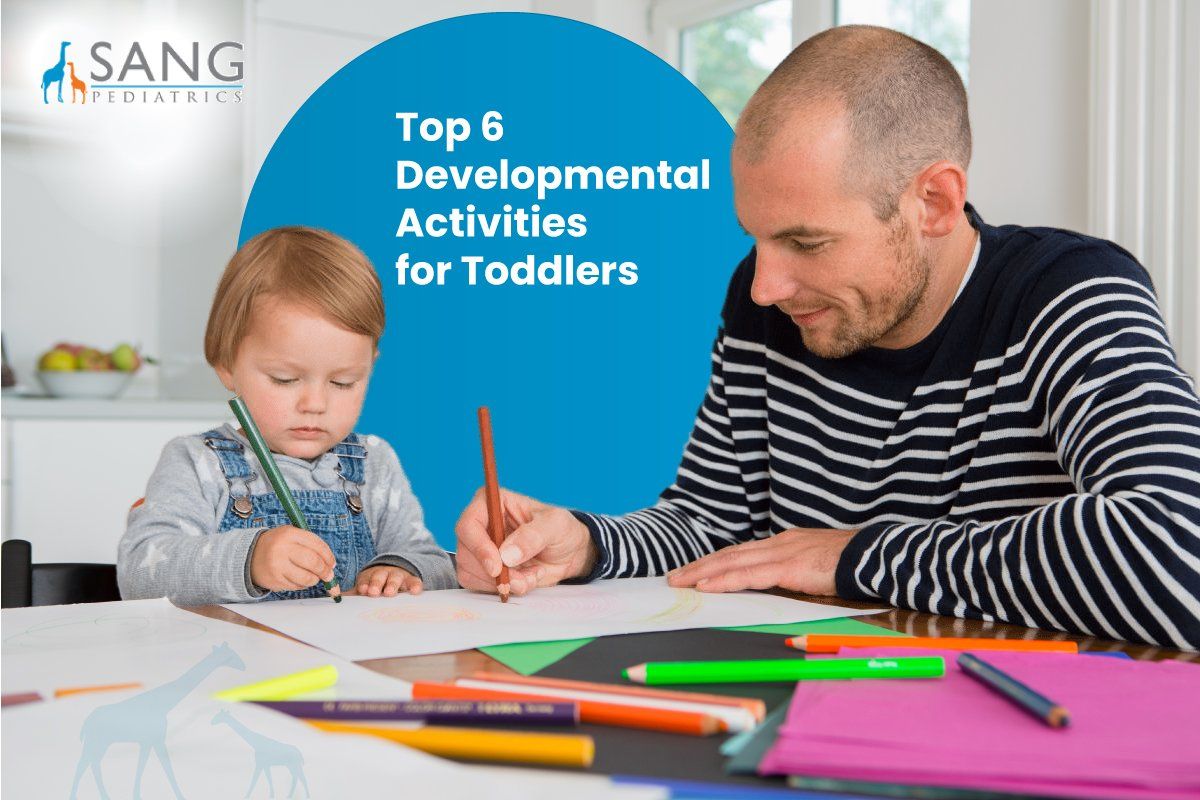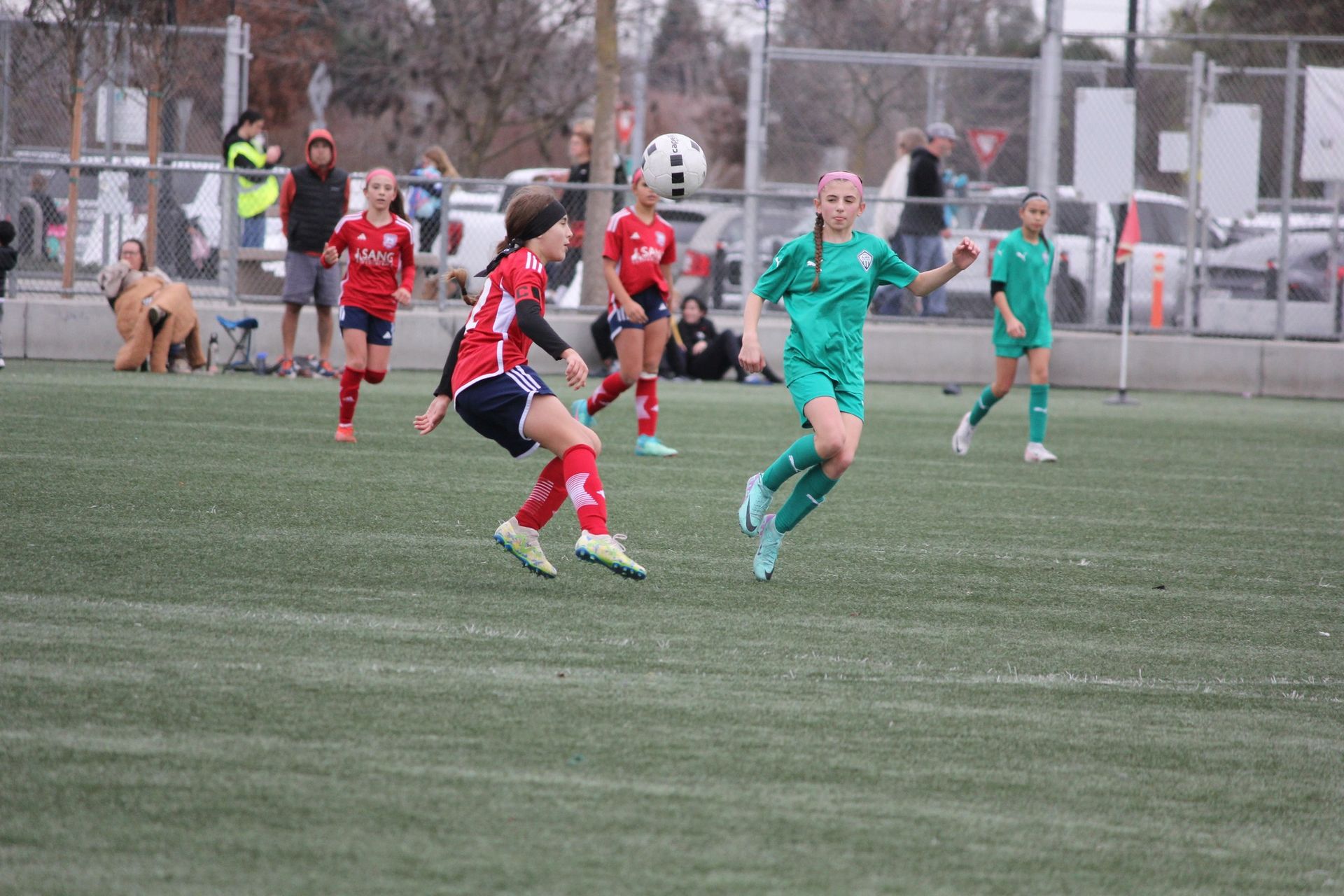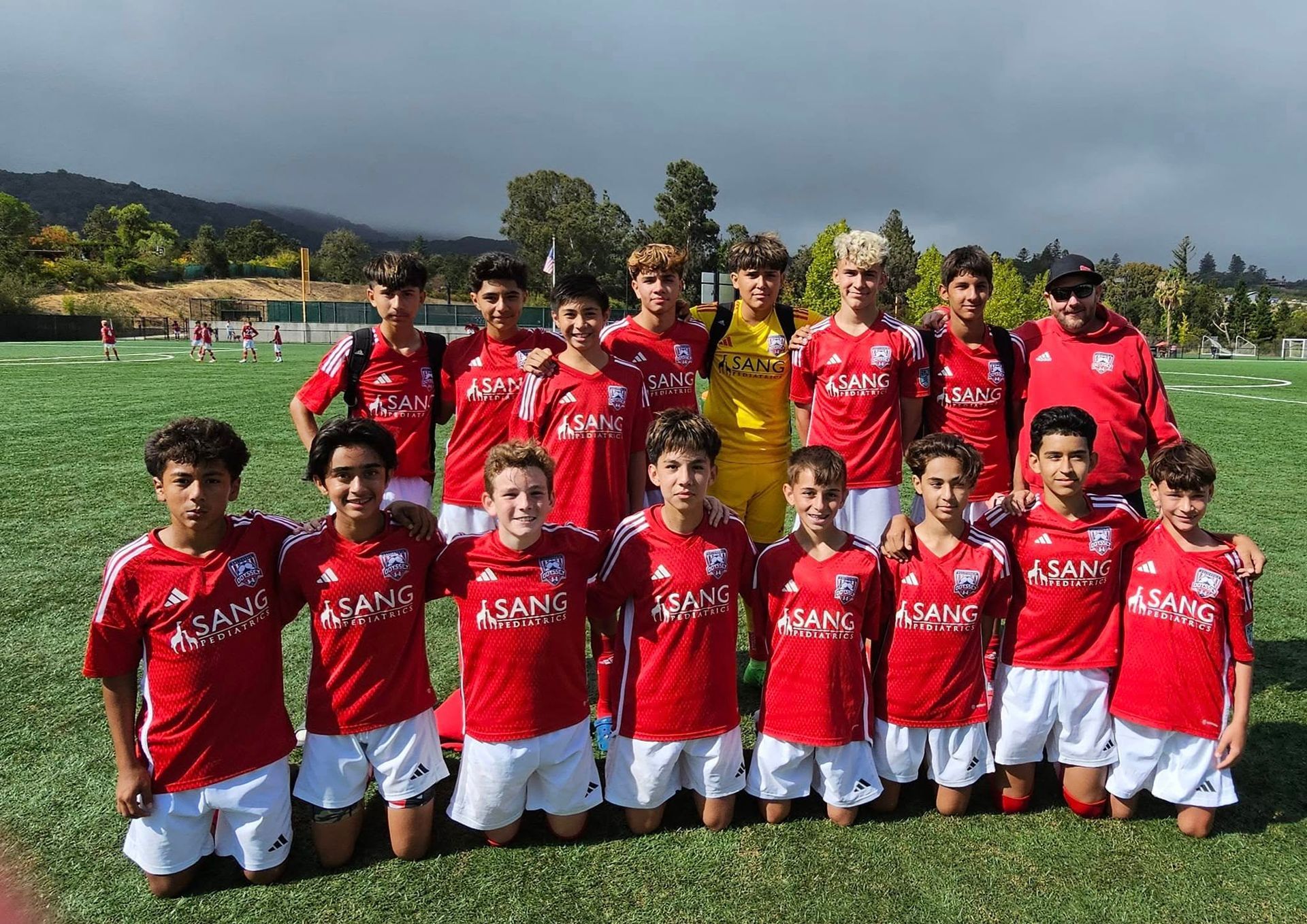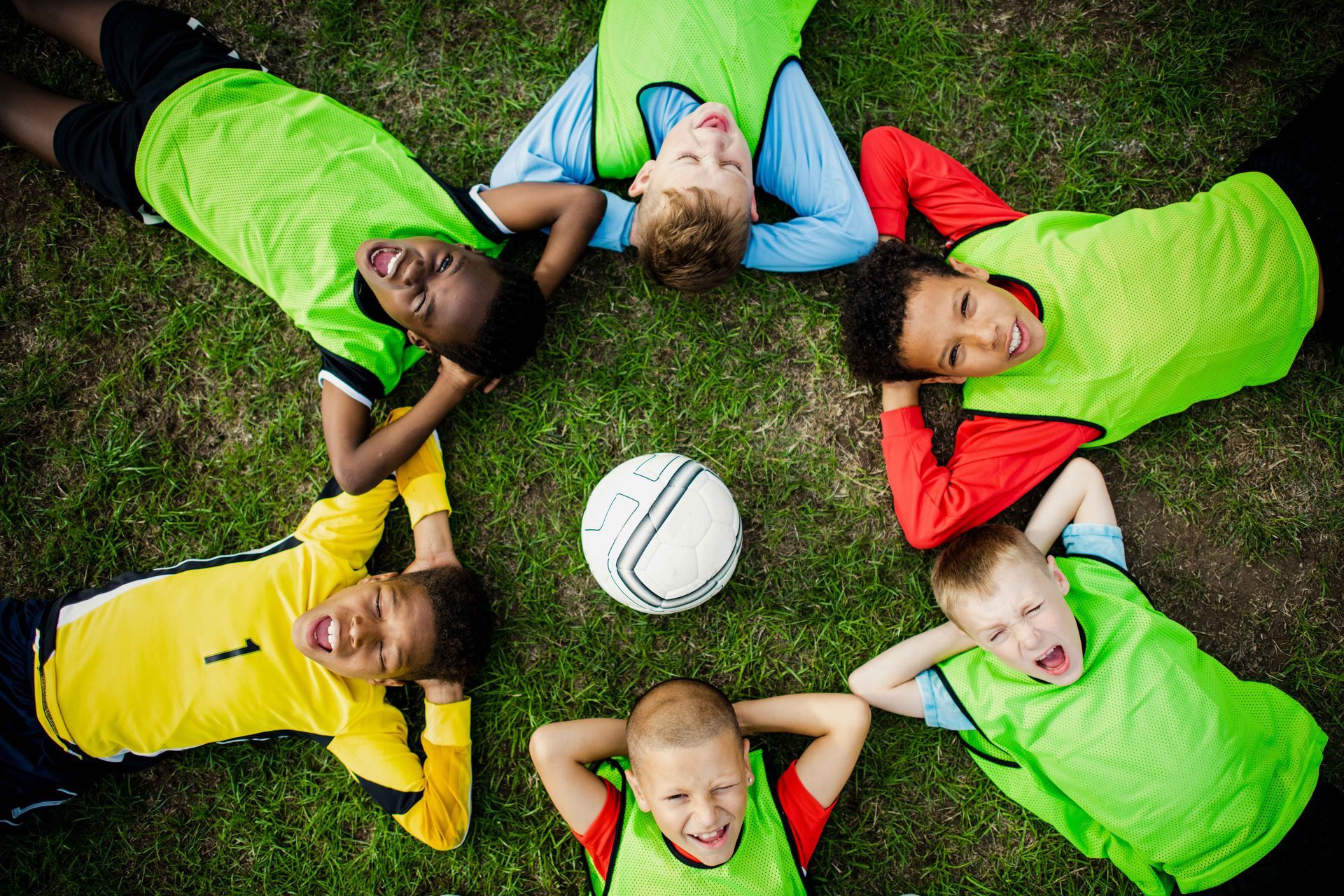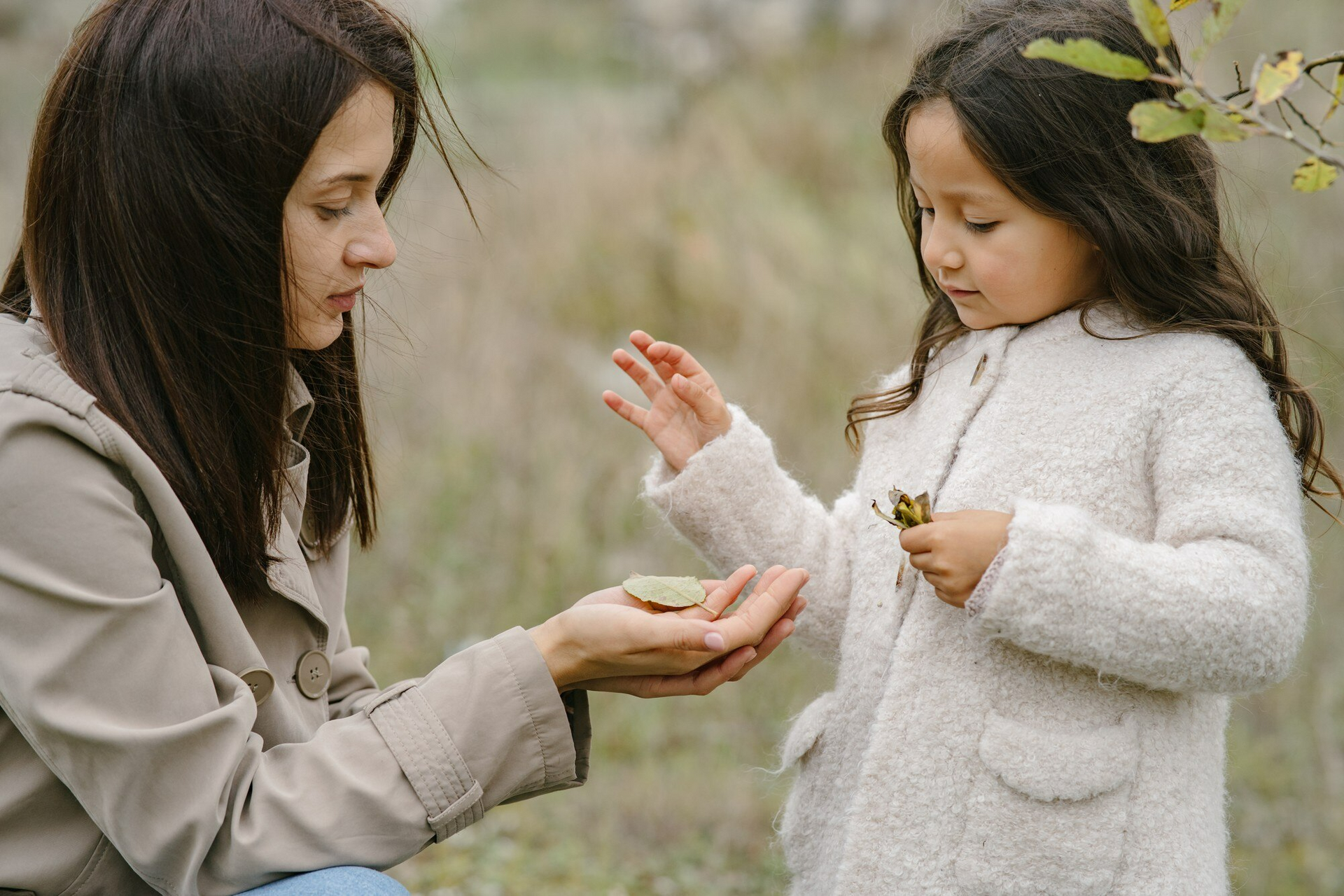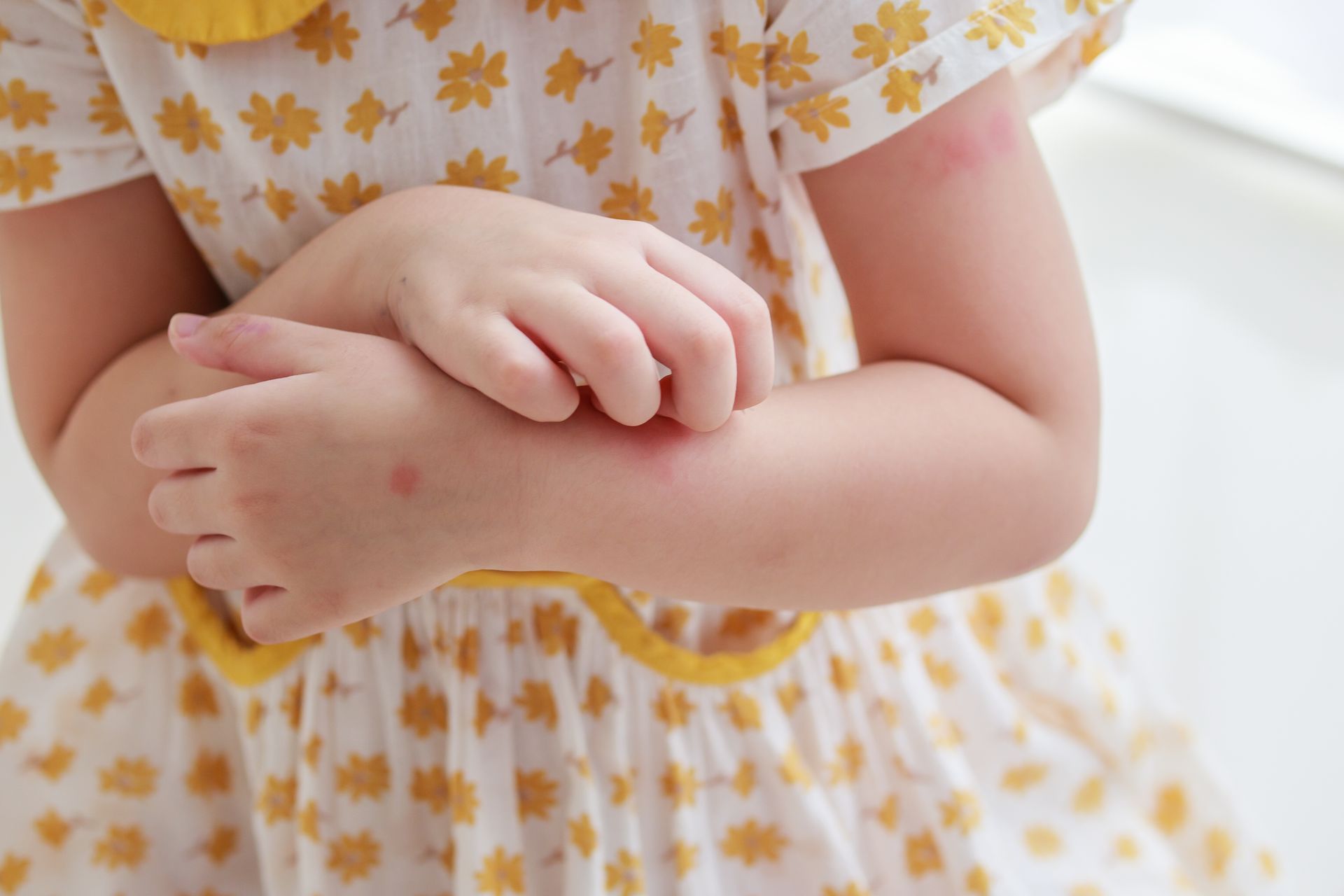As the saying goes, "it takes a village to raise a child." Your child's development milestones should involve you, the grandparents, early childhood educators, and the pediatrician. When you have your toddler monitored for development, you can see if they are progressing normally. It can help to point out to the pediatrician your
toddler's areas of development and the areas that need improvement, such as cognitive, affective, and physical growth changes.
This article will discuss developmental activities you can do with your toddler and how to do it effectively.
Why Is There a Need for Child Development Activities?
Your toddler can
learn and develop a lot from active learning. The activities can aid them in exploring their senses as well as the following:
- Hand-eye coordination - Your child needs this skill to perform actions that require combining their hands and eyes. These activities employ the information their eyes perceive (visual-spatial awareness) to direct their hands in motion.
- Gross motor - These skills require the use of the entire body. Your child's core muscles, like the tummy and back, and the muscles in their arms and legs.
- Fine motor skills - These are the abilities to make movements using the tiny muscles in your child's hands and wrists
. Many academic and work-related tasks will require fine motor skills.
Nevertheless, their development will be significantly impacted by genetic factors (genes inherited from their parents) and
prenatal events. It is also affected by environmental factors and the
child's capacity for learning.
Six Activities to Enhance Your Toddler's Development
Toddlers aged from 1 - 2 years old can already move about more and become more conscious of their surroundings and themselves. Additionally, their curiosity to discover new objects and people is growing. They will show increasing independence, demonstrate oppositional behavior, recognize themselves in photographs or a mirror, and copy the conduct of others, particularly adults and older children.
Your toddler can even recognize the names of known people and objects. You can formulate short phrases and sentences and carry out basic instructions, such as introducing age-appropriate activities to promote their development. Here are our top six activities that can help you with that:
1. Singing Words of Vocabulary
Teaching your toddler to sing can be done through one of the activities for development. Introduced to them the skill by
singing simple, age-old songs like the alphabet song or making up funny songs about rhyming words and counting to ten.
Encourage singing while driving, playing at home, and taking a bath. If your child goes to daycare, ask the teacher for the group's favorite songs so you can practice them at home.
Moreover, teach songs to babysitters and grandparents so that everyone who cares for your child can participate in this fun activity. Your child will also begin learning through music as they sing along to catchy tunes and repeat letters, numbers, days of the week, and body parts.
2. Making “Feelings” Pictures
Emotions aren't always easy to express, especially for a toddler. Your
toddler lacks the vocabulary and self-regulation abilities necessary to comprehend and express their feelings adequately.
You can help them develop a base by hanging photos of individuals with various faces that match their feelings. Your toddler can learn to read happy, sad, angry, and mad expressions simply by observing a person's face.
Repeat the process of pointing to the pictures and asking your child how she thinks the people in them feel.
3. Counting Everyday Things
Teach your toddler to say the numbers one through ten in order. You can help them work on learning their numbers in the ways below as well:
- Adding up numbers as you dress them ("One, two, three buttons")
- Preparing food ("There are six peas on your plate")
- Shopping for food ("I have three potatoes, so I need one more to make four").
Use your fingers to count, and tell them to use their fingers to do the same.
4. Putting Things in Groups by Type or Color
Observing, comparing, and contrasting things are essential to learning math at a young age.
In this toddler activity, you can ask your child to
- Sort his stuffed animals by type or color. For example, put the cats in one pile and the bears in another.
- When you do the laundry, see if your toddler can separate your clean socks from theirs.
- Have them put spoons of different sizes in the right place on the silverware tray.
Your child can also tell the difference between less and more. Ask questions like, "Which pile has the most and which has the least?"
5. Creating a Shape Book
There are a lot of books for toddlers that teach them about shapes, but you can do one better by helping them make their own book.
The steps below will help you:
- Draw shapes on paper, look up the newspapers and magazines, and cut out items that match each. (use plastic scissors)
- Then, take a walk and look for other things that have interesting shapes.
- Take pictures of the things your child points out, like a round tire, a square window, or a rectangular brick.
- When you get home, please print the pictures and glue them into the book. Label the shapes.
- Put some examples on pages to show your toddler that shapes come in different sizes.
6. Setting up a Weather Window Wall
By making a weather window, your child can learn about the different kinds of weather.
Putting this together is easy if you follow these steps:
- Take an 8" x 11" piece of white paper and have your child draw an image of the day's weather. Use any art medium, like watercolors, markers, and crayons.
- Then, to resemble a window frame and panes, cut three long (11" x 1") and three short (8" x 1") strips from brown construction paper.
- Assist your child with gluing two long and two short pieces along the edges of the paper to create window borders.
- To make a four-pane window, put the last two strips (one long and one short) in a cross shape and glue them in the middle of the paper.
- Add a word that describes the weather (cold, snowy, sunny) and the date to the window frame to see how the weather has changed over time.
You can hang the "windows" in the corner of your toddler's room and change them every month.
Your toddler's doctor can also tell you about their development
When searching "child-wellness clinics near me" or "pediatricians in Fresno, California," look no further than
Sang Pediatrics.
Our Routine Child Wellness Check-up will also include developmental monitoring. A missed milestone may indicate a problem, but our highly trained doctors can thoroughly examine your toddler and provide advice.
Call our clinic at (559) 268-1737.



